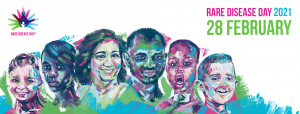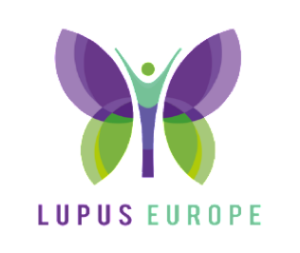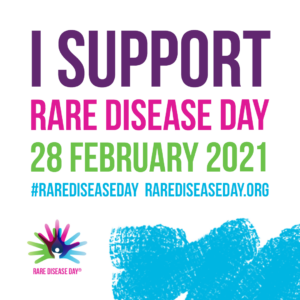

Today is Rare Disease Day!
Lupus is a rare disease in Europe, although for those living with it, it doesn’t feel rare at all!
There are estimated to be less than five in 10,000 people in Europe who are living with lupus. Having a rare disease means that most people around you don’t have any idea what you are going through.
(Positive aspect of COVID and LOCKDOWN?)
Up until a year ago, living with lupus meant for some, living in fear and isolation. Some lupus patients take medication that suppresses their immune system to treat their lupus, but this can make people susceptible to infections. Lupus patients often live with the threat of another bug, another flare, another complication and never know what tomorrow might bring. But today, there’s a new feeling almost of relief. People with lupus do not feel alone anymore!
Living in lockdown, with the threat of COVID-19 just outside the door, has brought up feelings of isolation and of being afraid of an invisible enemy for everyone. And while that is horrible and we wish it would stop as soon as possible for people everywhere, it is what some people with lupus may experience all the time. So today when we go out, masked, gloved, with our bottle of sanitising gel, no-one looks at us weirdly. When we avoid parties, or crowds, … for the first time ever we don’t have to explain or justify our behaviour.
Surprisingly, there have been positive aspects of this pandemic: the generalisation of remote working, telemedicine becoming a reality, remote ordering of medicines, more awareness of the effects of chronic diseases because of the awareness around “long covid” effects! Perhaps you have some other examples? Let’s make sure we are very clear about how much we appreciate those developments. As lockdowns end and we push COVID to the back of our minds, let’s not forget the lessons we all learned during this time. Let’s all use this experience as a starting point for an ongoing conversation with your friends, your families, your healthcare workers, with society at large. Let’s all discuss how to keep those improvements, while working together to end the isolation people with rare diseases often feel.
(LUPUS AND COVID VACCINES)
One step to getting out of lockdown is the COVID19 vaccination. SLEuro (The European Lupus Society is a community of clinicians and researchers interested in SLE and related syndromes) has released a very useful Q&A document on the Covid vaccine for patients with SLE. You can find it here: https://sleuro.org/sars-cov-2/
A lot of lupus patients around Europe have been vaccinated already, but many have not yet been offered a vaccine. Each country has its own vaccination priority lists. Lupus gives automatic priority in some EU countries, not in others. What is the situation in your country? What are things like for you? Have you been vaccinated? Let us know by commenting under this post on our Facebook page and on Twitter!
(LUPUS RARE DISEASE)
Today is Rare Disease day. We should all be aware of two significant actors that help the rare disease community raise their voices in Europe: Orphanet and Eurordis
Orphanet is the portal for rare diseases and orphan drugs, a unique resource, gathering and improving knowledge on rare diseases so as to improve the diagnosis, care and treatment of patients with rare diseases. https://www.orpha.net/
EURORDIS is a non-governmental patient-driven alliance of patient organisations representing 956 rare disease patient organisations in 73 countries. https://www.eurordis.org/
Have a quick look on their websites and see what they are fighting for and doing for you!
(RARE 2030 RECOMMENDATIONS)
This week, the recommendations from the Rare2030 foresight study were released:
http://download2.eurordis.org/rare2030/Rare2030_recommendations.pdf
Rare 2030 is a proposal of EU policy recommendations that will bring improved policy and a better future for people living with a rare disease in Europe. This two-year project was presented to EU Parliament last week with recommendations on the most critical areas needing better policy.
Here you can find information about Rare 2030: https://www.rare2030.eu
Please have a look at it and share it widely in your groups and countries. We will need to encourage our EU ministers to support it, so it’s good to learn as much as possible about it.
Use Rare Disease Day to start that conversation around you.
As they say: “Rare diseases are rare, but rare disease patients are numerous”. [/vc_column_text][/vc_column][/vc_row]
[/vc_column_text][/vc_column][/vc_row]



